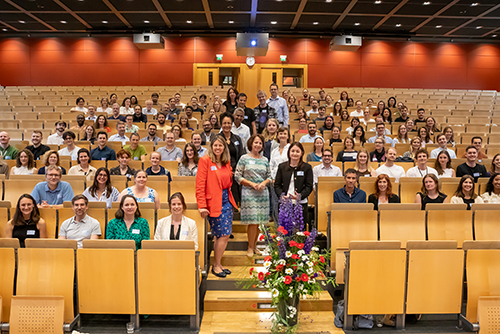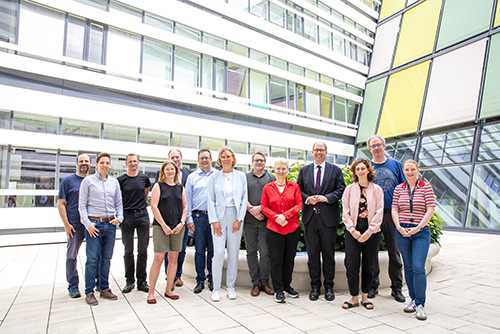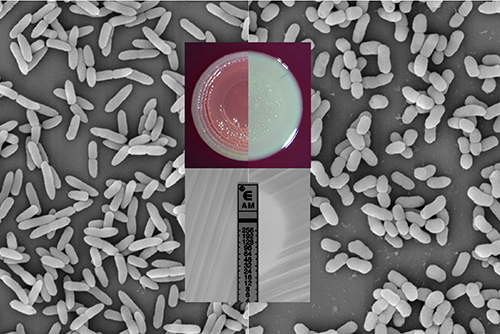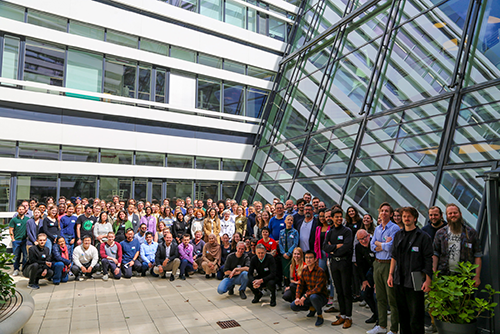iGEM Hamburg Team secures gold and a special prize
The iGEM Team Hamburg 2023 successfully showcased their project transFERRITIN at the annual iGEM Grand Jamboree, the synthetic biology industry’s largest innovation event hosted by the International Genetically Engineered Machine (iGEM) Foundation. During the Grand Jamboree in Paris, the Hamburg team was not only awarded a gold medal, but also the "Best Presentation Prize" in the "Overgraduate" category. In addition, the team was nominated for the prize for the best project in the field of therapeutic applications, which emphasizes the importance and influence of their research in this innovative field of science.
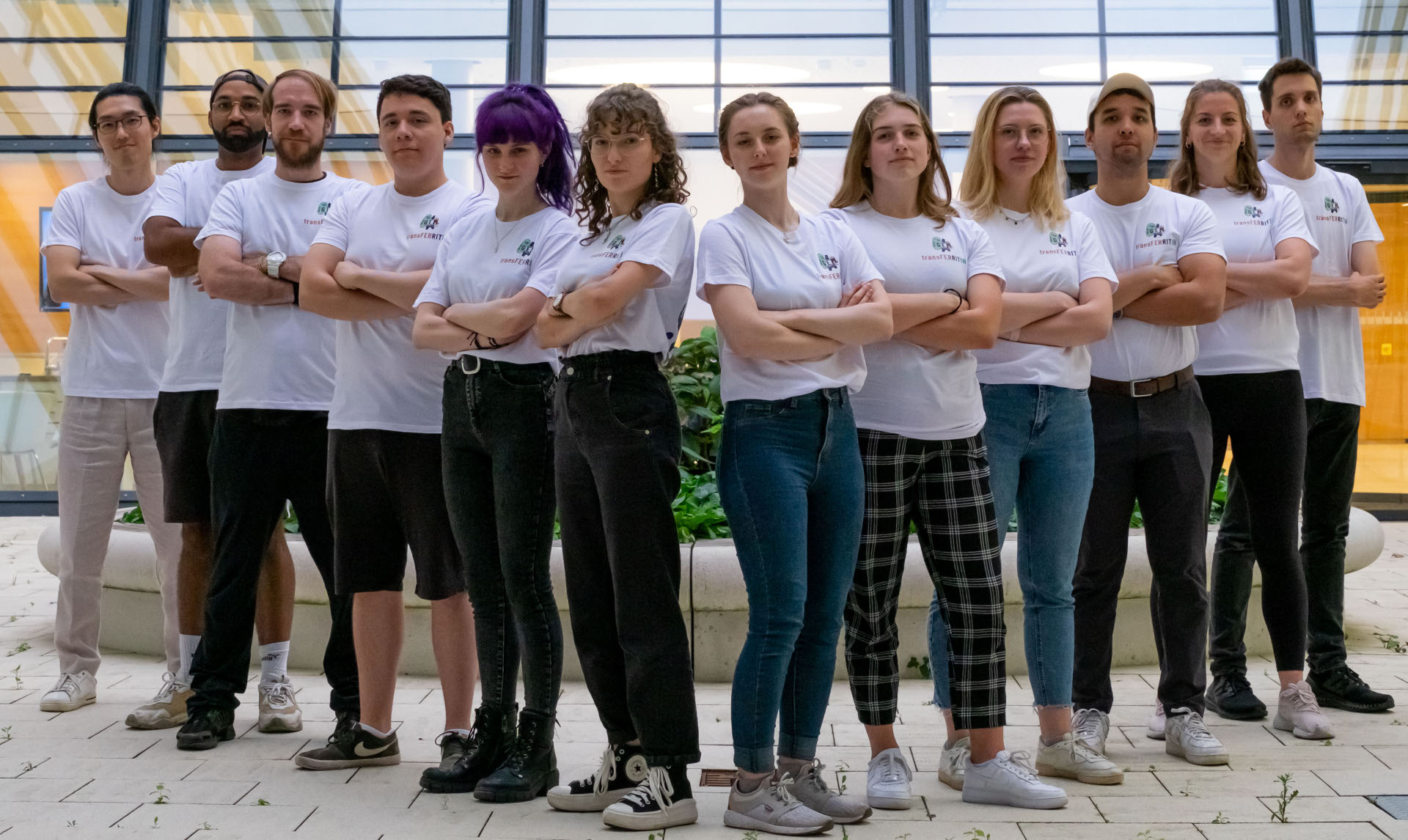
The iGEM Team Hamburg held their group meetings and conducted their research at the CSSB under the supervision of CSSB group leader Michael Kolbe. The independent and interdisciplinary student research team addressed the potentially catastrophic crisis of antibiotic resistance in bacteria fueled by the use of non-specific and systemic antibiotics. Their research objective was to synthesize a drug delivery system that enables the highly targeted introduction of antimicrobial molecules into bacterial pathogens.
The basis of the system is the iron storage protein ferritin. The reversible pH-based (dis)assembly capability of the protein complex is used to store plant-based antimicrobial substances inside ferritin. This was modified with cell-penetrating peptides (CPPs) and highly specific nanobodies to penetrate the bacterial membrane and deliver the drug directly into the targeted cell only. After degradation of the complex in the cell, the antimicrobial compounds are released and neutralise the pathogen.
An interview with the team
In the true embodiment of team spirit, the iGEM Hamburg Team took part in a group interview during which everyone jointly answered questions about their experience.
How far are you with your project in the lab?
So far, we have managed to fuse CPPs to ferritin and express this construct. We are now in trying to fuse the nanobodies to the ferritin complex. The iGEM project only lasts for one year however a small group from team will carry on with the project.
How did you organize yourselves for this project?
It’s good that we are such a large group as we were able to create committees to cover different tasks this enabled us to spread our focus and take part in several different outreach activities such as Day of German Unity, Girls and Boys Day and the university summer festival.
We needed to organize all aspects of the project such as finance, safety, communication, outreach, web design, social media and entrepreneurship. We were able to play to our individual strengths and also reach out to experts for advice. We learned how to shape all aspects of our own project and discovered so much more one typically learns during classes at the university.
What did you learn?
This was all about teamwork and learning to working together. We also learned how to deal with failure and to look for solutions. For most of us this was our first scientific project and the first time we were able to design and perform our own experiments. We also acquired budgeting, programming, and corporate design skills depending on what committees we were a part of. Over the course of the year, we learned the importance of perseverance.
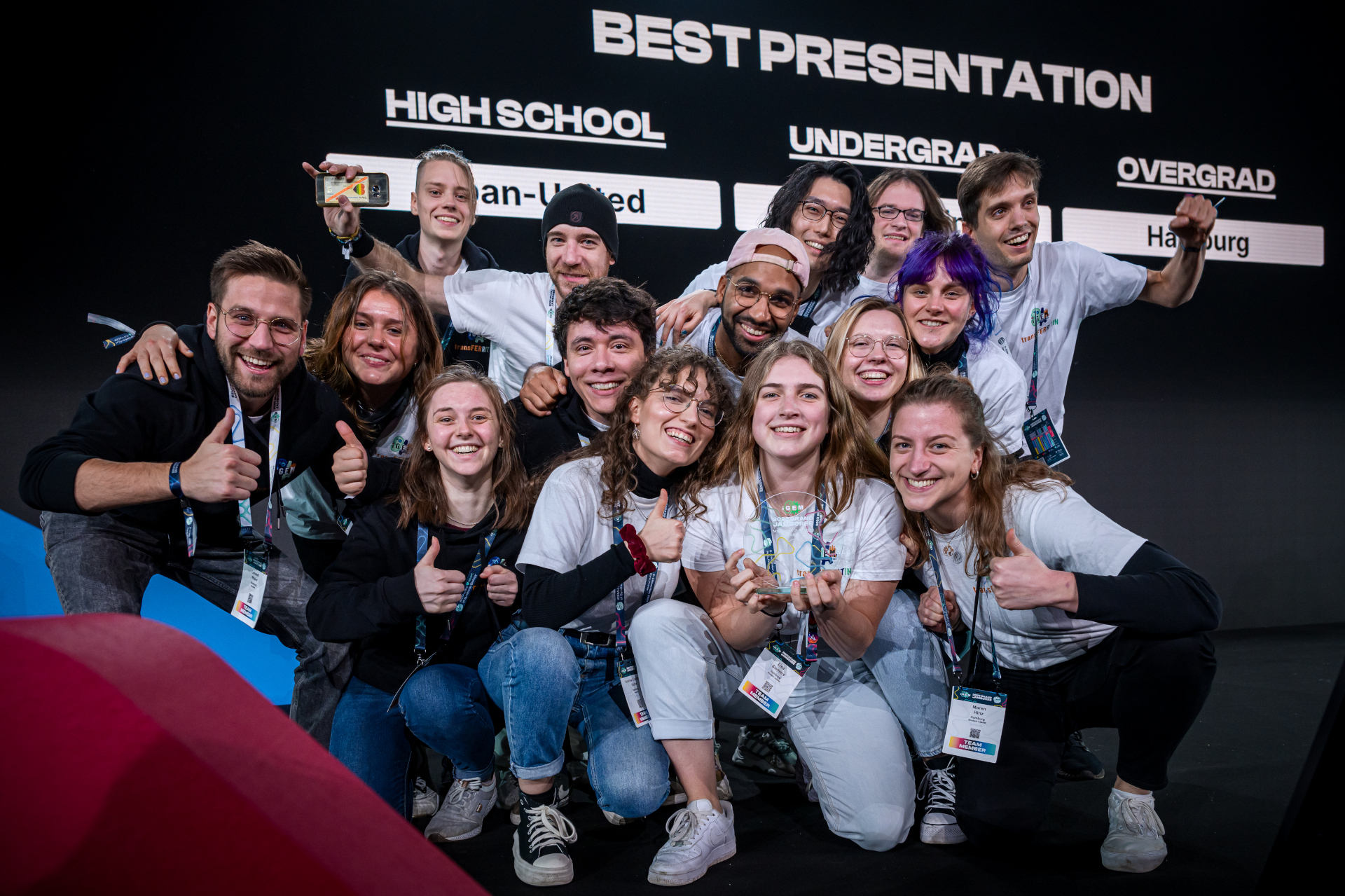
What was the most fun about being part of iGEM?
The teamwork – we are a truly interdisciplinary team and learn so much from each other. We also really enjoyed the meet-ups with other iGEM teams and networking with them.
Of course, the Grand Jamboree in Paris was amazing! Being there with over 400 iGEM teams was great. The highlight was running on to the stage together after we found out we won the gold medal. It was really rewarding to receive such positive feedback from the judges.
What advice would you give next year’s team:
Start working on your project as soon as possible and make sure to set your deadlines early. You will probably underestimate your work load.
Don’t underestimate how great your project can be. It can be hard to see your project’s potential in the beginning. Overall, you get a lot out of the time you invest in iGEM.
Don’t lose trust in your project. There will always be problems and things that don’t work out. It was all worth it to read the judge’s comments and see how positive they were about our project.
Synthetic biology combines knowledge from so many different fields. Our fields of study include nano science, chemistry, biology, and plan science – having a diverse team is really important. Everyone can make a valuable contribution.
Join iGEM Hamburg
If you would ike to become part of the iGEM team for 2024- we are always looking for participants from all fields of study - simply write to us at igem.hamburg@gmail.com
For more information about the Hamburg iGEM project: https://2023.igem.wiki/hamburg/
iGEM Hamburg 2023 Team Members
Melina Baar, Sebastian Federle,Amelie Geuer, Maren Hinz, Junsoo Im, Andrea Köthe, Jule Krawietz, Fanny Ott, Jochen Otto, Malcom Rose, Joel Senador, Lisa Siemers, Lennert Weber, Jonas Westphal
